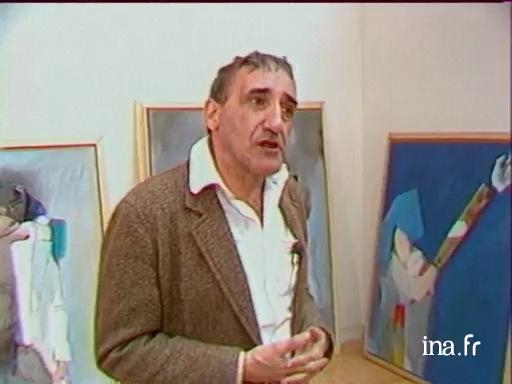Painter Tadeusz Kantor

Information
Polish artist Tadeusz Kantor delivers his conception of Art, which excludes any relation of influence between Art and Politics.
Context
A painter, director and most certainly a man of Polish theatre, Tadeusz Kantor, born in 1915, vehemently pleaded for autonomy in art, free from any political or religious subordination, which was accused of blocking the essence of the man's work and imagination: "Art explains human condition, it's something much deeper than politics". This bias, confirmed in March 1982 - three months after the state of siege that general Wojcieh Jaruzelski imposed on Poland against the rising power of Lech Walesa's Solidarnosc syndicate - isn't really new to Kantor, and it finds its origins at the beginning of his artistic career.
Under Hitler's occupation, the artist founded his first independent theatre (Teatr Niezalezny) in Karkow, which was bound to stay underground in order to stay hidden from a regime that considered the modern trend to be a "degenerate art". Even though he stuck to his ideals, Kantor wasn't entirely protected from the jolts of the world: the shock of the war, deportation, and the rejection of nationalisms fed his creations, which were marked by the central theme of death, which he explored through an aesthetic willingness influenced by surrealism, informal art and "arte povera", and the 1970's post-modernism.
Very open to the world, Kantor travelled and became known in France in 1977 with his play The Dead Class, where he mixed wax figures along with actors dressed in black. During the 1980s, he produced plays rather than plastic art: Where Are the Snows of Yesteryear (1979), Wielopole-Wielopole (1980), Let the Artist Die! (1985), I Shall Never Return (1988), etc... Tadeusz Kantor died on 8 December 1990, after a rehearsal of his latest play: Today is My Birthday.













